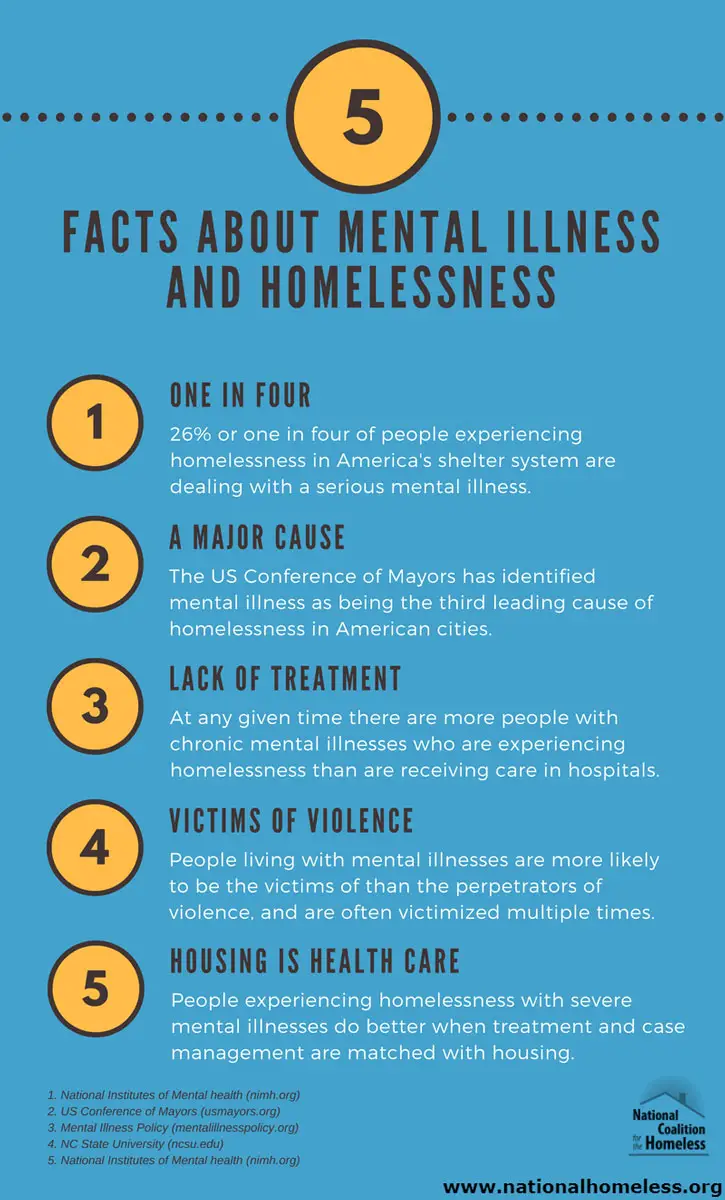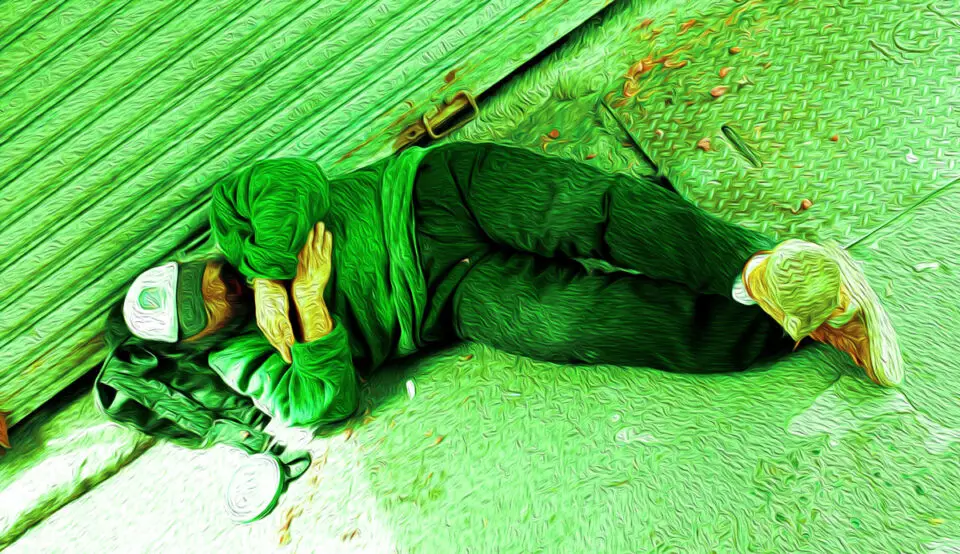REGION — Luke’s struggles began in college when he started exhibiting strange behaviors, suffering from confused thinking and expressing increasingly irrational beliefs.
“He was doing great, and then over time it was obvious that something was very wrong,” said Janna, Luke’s mother and a North County resident. “I watched as my smart, funny, loving, top-of-his-class child was slowly hijacked by one of the most debilitating diseases on the planet.”
The family quickly got Luke in front of a psychiatrist, but since the doctor was unsure of a diagnosis at the time, he ultimately didn’t receive any meaningful treatment.
After college, Luke’s condition worsened considerably. He was forced to leave his job due to his erratic behavior and his mother worried he might harm himself. But there was very little she could do because Luke simply wouldn’t accept help.
Luke suffered from anosognosia, also called “lack of insight”— a symptom of certain mental illnesses that prevents an individual from recognizing they’re sick and need help. According to the Treatment Advocacy Center, around 50% of individuals with schizophrenia and 40% of those with bipolar disorder also suffer from anosognosia.
The condition is so severe that a sick person can be malnourished and physically deteriorating to near death but will still refuse assistance, according to Dr. Susan Partovi, who works with homeless patients on Los Angeles’s Skid Row.
“Somebody with anosognosia…they’ll just ignore what’s wrong, even if they’re bleeding or having heart failure, they think everything’s fine, they’ll even tell you nothing’s wrong…but really they lack the capacity to make these decisions,” Partovi said.
“Luke kept refusing to go to the doctor or when he did he’d refuse help and say nothing was wrong with him..with anosognosia, you have this inability to even recognize that you are ill, and that’s a huge barrier to getting care because they won’t voluntarily get help,” Janna said.
Conservatorships
As the months dragged on and Luke grew sicker, his family tried to get him into care through the Lanterman-Petris-Short (LPS) Conservatorship Act, a state law that allows individuals suffering from severe mental illness to be involuntarily committed to a long-term care facility until they are well enough to return to the community.
Despite the severity of Luke’s condition, state conservatorship officials declined to take his case, saying that he did not meet the necessary criteria required for a conservatorship. Janna was outraged.
“All of a sudden when your child turns 18 it’s like you no longer have the right to help your kid,” Janna said. “This LPS act has caused so many deaths in our state because you can’t get people into care, and that’s because the bar is just too high. We want our children to have the civil right to live over the civil right to die, right now people are just deteriorating to the point of where they’re out on the streets…it’s just wrong.”
The LPS law and the way it has been interpreted have exacerbated California’s homelessness crisis, according to Paul Webster, founder and director of the Hope Street Coalition, a homelessness advocacy group based in San Diego.

Webster said that civil liberties groups like the ACLU have been successful in pushing for a more extreme interpretation of conservatorship law that prioritizes the personal freedom of the mentally ill homeless at the expense of their wellbeing.
“With LPS law there’s a battle occurring, and it’s a battle that has been won by civil liberties advocates…they’ve taken a very uncompromising position which says that all treatment has to be voluntary, the legal threshold is so very high…the way the law is now is that your son or daughter can die on the streets as long as their ‘civil liberties’ are wholly intact,” Webster said.
“Is the way this law is being interpreted helping the most vulnerable? Not necessarily…the question is will lawmakers do what’s right and calibrate this law so that there’s a balance between people’s civil liberties and their needs to get the help that they need — sometimes without their consent.”
The notion that individuals suffering from mental illness must consent to treatment ignores how brain diseases like schizophrenia or bipolar disorder work, Janna said.
“When someone has a brain disease, it’s like they’ve been hijacked,” she said. “Most of these people like my son will never get care voluntarily, and it just ends up leading to more deaths and more problems…you’re watching your beloved child disintegrate in front of your eyes and your hands are tied.”
Not enough beds
Luke eventually moved back home, but Janna had to call the police on several occasions when Luke’s behavior deteriorated. Eventually, Luke was taken by the Psychiatric Emergency Response Team, or PERT, to a county psychiatric hospital. But Luke was almost immediately discharged without being stabilized or treated with any kind of medication.
Janna believes that by releasing people like Luke to the streets before they’re stabilized, San Diego’s hospitals are worsening the homelessness crisis.
“These hospitals are letting people go without stabilizing them…if you had Parkinson’s or Alzheimer’s they wouldn’t kick you out into the street until you’re stabilized, they would provide supportive services once you got home…why is this any different?”
According to Partovi, hospitals and psychiatric facilities have an incentive to get patients out the door quickly because of federal limits when it comes to insurance coverage. Patients admitted for psychiatric hospitalization are only covered by Medicaid for three days after admission. After that, the hospital has to foot the bill if the patient doesn’t have private insurance.
“After three days of hospitalization, psych patients are the state’s responsibility, but the state has just given up and says it’s the individual counties responsibilities…the bottom line is that the state is not giving hospitals enough money to take care of people who need a long term treatment facility,” Partovi said.
Countless patients like Luke are discharged due to limits on insurance coverage, and others are rejected by psychiatric care centers simply because there is no space at these facilities, Partovi said.

“Where are people supposed to go? There are simply not enough beds in acute and sub-acute facilities in San Diego County,” Janna said.
On several occasions, Janna distinctly remembers conversations that she had with county representatives. The officials told her that her family’s best bet was to kick Luke out of their house, making him homeless, and then hopefully he’d get picked up and taken to jail, where he might receive treatment.
“Does that make sense to you?”
Archaic laws
Around the time that he turned 27, Luke became homeless. After spending six months on the streets, Janna says that Luke was arrested for a nonviolent crime. Despite his observably deteriorated mental state, Luke was allowed to defend himself at his jury trial—and was predictably found guilty.
“That trial was such a sham…even the judge admitted it later and told us that Luke should never have been allowed to stand trial,” Janna said. “By the time that he got into court, he was so ill it was horrible…how was this trial allowed to happen?”
Luke sat in jail for nearly a year with no medication or treatment, even though his family had given the court his medical history.
Luke was declared incompetent to stand trial, and a few months later he started involuntarily receiving medication. Less than a week later, Janna sobbed as she recalls getting a phone call from Luke who she hadn’t spoken to in over a year.
“I get a call and he said, ‘Mom, I realize how much I love you, I’m sorry, please come down and visit me’…it was heartbreaking.”
Just before Luke was sent to jail, Janna says that she tried to get her son into San Diego’s Assisted Outpatient Treatment, or AOT— a court-ordered community treatment program for individuals suffering from severe psychiatric disorders to get the treatment they need before they land in the criminal justice system. The program was established under Assembly Bill 1421, also called Laura’s Law.
But after several months, In-Home Outpatient Treatment, or IHOT, a team that screens people for admission to the AOT program, dropped his case because Luke wasn’t voluntarily consenting to treatment. Janna has spoken with other families with desperately sick adult children who have shared similar outcomes with IHOT.
“In our county…they’re dropping these cases because these people wouldn’t accept help…the problem is that for 50% of people that suffer from these kinds of brain diseases, they don’t recognize that they’re ill and that’s part of the problem…it makes no sense that our county isn’t using best practices for AOT, they’ve just really let us all down,” Jana said.
“This isn’t what AOT is supposed to be about…If this were any other medical disease, this whole situation would be malpractice a billion times over…you’re applying archaic laws to medical conditions that should be in the domain of doctors, not lawyers, judges, and officers.”
Eventually, Luke’s family was able to convince a judge to send him into a residential care facility in San Diego, which Janna says they were able to cover through the family’s private insurance. And it was here that Luke’s life turned around, starting to recover from his illness with a combination of proper medication and long-term treatment.
Luke has made tremendous progress with the right care and treatment. Through working with an attorney, he is getting his criminal record expunged, and is working on getting his master’s degree online. But Janna says she’s angry at all the years of his life that were wasted because of systems that failed her son.
“I just think why couldn’t this have happened eight years ago while he was getting sick, there’s been all the wasted years, all the trauma to him and our family.”
Janna isn’t waiting around for someone else to find solutions — in early 2021 she took on a leadership role in a national self-help nonprofit/think tank that studies mental illness and provides services for those suffering from brain diseases like that experienced by Luke.
She also does a significant amount of advocacy online through social media, sharing her expertise and experience with mental illness with other mothers and families going through the same experience.
However, Janna admits that the social stigma surrounding mental illnesses and homelessness has made her hesitant to share her story publicly. Even for this article, Janna asked The Coast News to use pseudonyms for herself and her son so as to protect the family from any negative attention.
Janna said she’s friends with a family whose son recently lost his job because his employer found out about his bipolar disorder, and expressed that she wants to protect Luke from undergoing a similar experience.
“There’s still so much bigotry and discrimination around this…the public has the completely wrong idea about these illnesses, that these people are psychos and they’re going to kill people, it just isn’t true,” she said. “It’s maddening that I feel like I can’t talk publicly about this because it could hurt my son’s job prospects …these attitudes just put a terrible load on somebody with a treatable brain illness even once they get better.”
Social injustice
According to Janna, a lack of county and state resources, laws like LPS, ineffectively implemented AOT programs and a systemic misunderstanding of mental illness are keeping thousands of people like Luke on the streets of San Diego.
“The LPS law needs to be wholly eradicated, it’s just not based in reason,” Janna said. “It’s so hard to get a conservatorship for your adult children in this state to get them back on their feet, and there’s just no accountability built into the behavioral health system…and then there’s also no coordination at the state and local level for the people that are in charge of our kids’ health. These are medical conditions, brain diseases that only doctors should be responsible for.”
“I will never give up on this, this is a social injustice, it’s a humanitarian crisis, it’s one of the last frontiers that is so egregious in terms of what our country is doing to people who have treatable medical illnesses.”
EDITOR’S NOTE: This article is the second in a three-part series profiling homeless individuals and their families in North County. Check out the first story, “Homeless in North County: Jake’s Story.”



